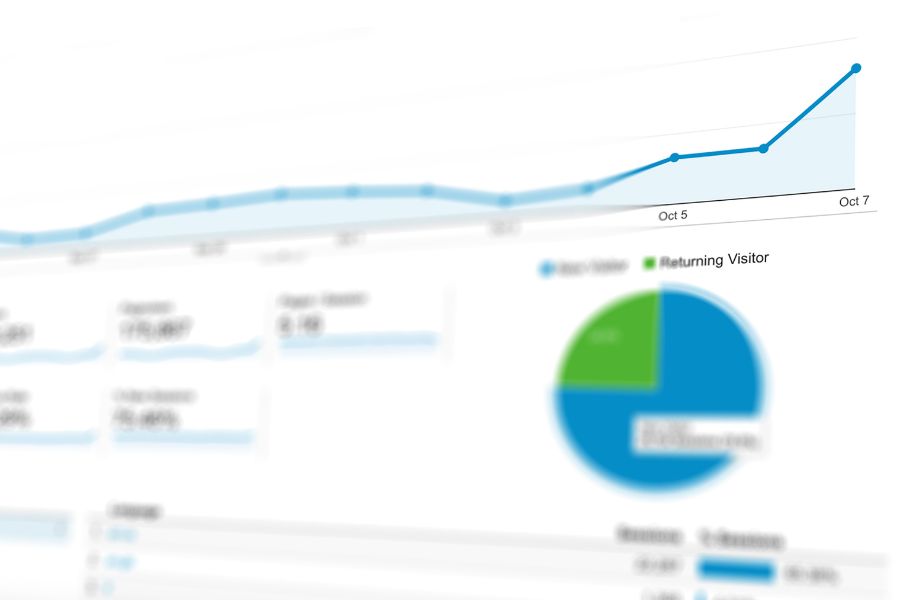Disclaimer: We sometimes use affiliate links in our content. For more information, visit our Disclaimer Page.
Monetizing a website can be a difficult task, particularly if you want to steer clear of relying solely on ads to generate revenue. Although ads are a popular way to earn money from a website, they can be intrusive and annoying, potentially deterring visitors and hindering user experience. However, there are many alternative methods to monetize a website that don’t require ads.
In this article, we’ll delve into some of the most effective ways to earn money online without the need for ads. From affiliate marketing and sponsored content to selling digital products and memberships, we’ll explore a variety of monetization strategies that can help you unlock your website’s profitability potential.
So, if you’re tired of relying on ads to earn money from your website, keep reading to discover some of the best ways to monetize your website without ads.
The Limitations of Display Ads for Website Monetization
Display ads can have downsides, including being intrusive, affecting user experience, and causing ad fatigue. Additionally, revenue from display ads can be unpredictable, depending on click-through rates and ad placement.
Diversifying your revenue streams by exploring other monetization strategies can help you maximize your website’s earning potential. By using alternative methods like affiliate marketing, sponsored content, or selling digital products, you can reduce your dependence on display ads and achieve greater stability and profitability.
11 Ways to Monetize Your Website Without Displaying Ads

Have your own site and don’t want to depend on ads alone? Here are 11 ways how to monetize a website without ads.
1. Online Courses
If you have expertise in a particular subject or skill, you can monetize your website by creating and selling online courses. Online courses are in high demand, and people are willing to pay a premium for quality content that helps them achieve their goals.
To create an online course, you can use platforms like Teachable, Udemy, or Kajabi, which provide tools to create and host courses. You can also offer personalized coaching or consulting services to supplement your online courses.
2. Affiliate Marketing
Affiliate marketing is one of the most popular and profitable ways to monetize your website. It involves promoting other people’s products or services on your website and earning a commission for each sale or lead generated through your referral link. The commission rates can vary from a few dollars to thousands depending on the product and the affiliate program.
To start with affiliate marketing, you can sign up for an affiliate program that aligns with your niche and audience. Then, create content that promotes the product or service and includes your affiliate link. The key to success with affiliate marketing is to provide value to your audience and promote products that align with their interests and needs.
Related: How To Start a Successful Affiliate Marketing Business
3. Sponsored Content
Another way to monetize your website is through sponsored content. This involves creating content that promotes a brand or product in exchange for payment. Sponsored content can include blog posts, reviews, videos, and social media posts.
To attract sponsors, you need to build a strong online presence, create high-quality content, and have a significant following in your niche. You can also reach out to brands that align with your values and offer to create sponsored content for them.
4. Digital Products
You can also monetize your website by selling digital products like e-books, templates, software, or stock photos. Digital products have low overhead costs and can be created and sold in bulk.
To sell digital products, you can use platforms like Gumroad, SendOwl, or E-junkie, which handle payment processing and delivery. You can also sell digital products on your website by creating a dedicated sales page and using payment gateways like PayPal or Stripe.
5. Memberships
If you have a loyal following and provide exclusive content or services, you can monetize your website by offering paid memberships. Memberships can include access to premium content, community forums, discounts, or personalized support.
To create a membership program, you can use platforms like Patreon, Memberful, or WooCommerce Memberships. You can also offer memberships on your website by creating a dedicated membership page and using payment gateways like PayPal or Stripe.
6. Donations
If you provide value to your audience and they appreciate your work, they may be willing to support you through donations. Donations can be a one-time or recurring payment and can be facilitated through platforms like PayPal or Patreon.
To encourage donations, you can create a donation page on your website and provide incentives like exclusive content or shoutouts to donors.
7. E-commerce
If you have a niche website that sells products or services, you can monetize it by adding an e-commerce store. E-commerce stores allow you to sell physical or digital products directly to your audience.
To create an e-commerce store, you can use platforms like Shopify, WooCommerce, or BigCommerce. You can also add an e-commerce store to your existing website by using plugins or integrations.
Related: Ecommerce Marketing Strategies
8. Coaching or Consulting
If you have expertise in a particular field, you can monetize your website by offering coaching or consulting services. Coaching or consulting services involve providing personalized advice or guidance to clients to help them achieve their goals
To offer coaching or consulting services, you can create a dedicated page on your website that outlines your services and pricing. You can also use platforms like Clarity.fm or Coach.me to connect with clients and manage payments.
9. Sponsored Events
If you have a large following and influence in your niche, you can monetize your website by hosting sponsored events. Sponsored events can include webinars, workshops, conferences, or meetups.
To host sponsored events, you can partner with brands that align with your niche and audience and offer them sponsorship opportunities. You can also sell tickets or charge a fee for attending the event.
10. Job Board
If your website caters to a specific industry or niche, you can monetize it by adding a job board. Job boards allow employers to post job openings and job seekers to search for job opportunities.
To create a job board, you can use platforms like Job Board by BestWebSoft or WP Job Manager. You can also charge a fee for job postings or offer premium features like featured job listings or applicant tracking.
11. Lead Generation
If you have a website that generates leads for businesses, you can monetize it by charging for lead generation services. Lead generation services involve collecting contact information from potential customers and providing it to businesses in your niche.
To offer lead generation services, you can use platforms like Unbounce or Leadpages to create landing pages and forms that collect leads. You can also use tools like Constant Contact or Zapier to automate lead delivery and manage payments.
Related: How to Generate Leads for Your Business
How to Choose the Right Monetization Strategy for Your Website
Choosing the right monetization strategy for your website is critical to unlocking its profitability potential. To do so, you need to carefully consider various factors, such as your website’s niche, audience, and strengths and weaknesses. In this section, we’ll explore how to choose the right monetization strategy for your website and achieve your revenue goals.
First, evaluate your website’s niche and audience. What topics and subjects does your website cover? Who is your target audience? Understanding your niche and audience is critical to selecting the right monetization strategy. For example, if your website caters to a specific industry, adding a job board or offering consulting services may be a lucrative monetization option.
Next, assess your website’s strengths and weaknesses. What unique value does your website offer? What are its weaknesses or areas for improvement? Understanding your website’s strengths and weaknesses can help you determine which monetization strategies align with your website’s goals and can lead to greater profitability.
Consider your audience’s preferences and needs. What types of products or services would they be willing to pay for? What topics or subjects are they interested in? By understanding your audience’s preferences and needs, you can tailor your monetization strategy to meet their demands and maximize revenue potential.
Evaluate the competition. What monetization strategies are your competitors using? Are there any gaps in the market that you can fill? By evaluating the competition, you can identify areas where your website can stand out and differentiate itself from others in your niche.
Experiment with different monetization strategies. There is no one-size-fits-all approach to website monetization. Testing different strategies and analyzing their effectiveness can help you determine the best approach for your website. Start small and gradually expand your monetization efforts as you gain more experience and insight.
The Importance of Building a Strong Online Presence for Monetization Success

Building a strong online presence is essential for monetization success. To achieve this, you should focus on creating high-quality content that resonates with your audience and offers value to your visitors. By doing so, you can establish a loyal following that is more likely to engage with your monetization efforts.
In addition to creating high-quality content, engaging with your audience through social media, email marketing, and other channels is crucial to building a strong online presence. Your loyal followers can help promote your website, expand your reach, and increase your influence.
Establishing your website as an authority in your niche is also an important aspect of building a strong online presence. By providing expert insights and thought leadership, you can establish your website as a trusted source of information, making it easier to monetize through products, services, and partnerships.
Furthermore, prioritizing user experience when building your online presence is essential. A well-designed website with a positive user experience can lead to increased engagement and revenue. By ensuring that your website is easy to navigate and use, you can create a positive impression on your visitors, encouraging them to return and engage with your monetization efforts.
Common Monetization Mistakes to Avoid
When it comes to website monetization, there are several common mistakes that can hinder your success. One of the most significant pitfalls is using too many ads. Overloading your website with ads can negatively impact user experience and lead to decreased engagement and revenue. Instead, focus on using ads strategically and sparingly to avoid overwhelming your visitors.
Another mistake to avoid is ignoring user experience. A well-designed website with clear calls-to-action and no intrusive ads is critical to maximizing engagement and revenue potential. Additionally, ensure that your website is easy to navigate and use to encourage visitors to engage with your monetization efforts.
Failing to diversify your revenue streams is a common mistake to avoid. Relying solely on one strategy, such as advertising, can leave your website vulnerable to market fluctuations. Instead, incorporate other monetization strategies like affiliate marketing, sponsored content, or selling digital products to reduce your dependence on any one strategy and ensure greater stability and profitability in the long run.
Related: How To Sell On Shopify Without Inventory
Conclusion
Monetizing your website without ads can be a lucrative and rewarding endeavor. By choosing the right monetization strategy, building a strong online presence, and optimizing your website for maximum revenue potential, you can unlock your website’s profitability potential and achieve your revenue goals.
While avoiding common monetization mistakes and prioritizing user experience and diversification, you can maximize your website’s earning potential and ensure greater stability and profitability in the long run. With these strategies in mind, you can successfully monetize your website and achieve financial success in the online world.





